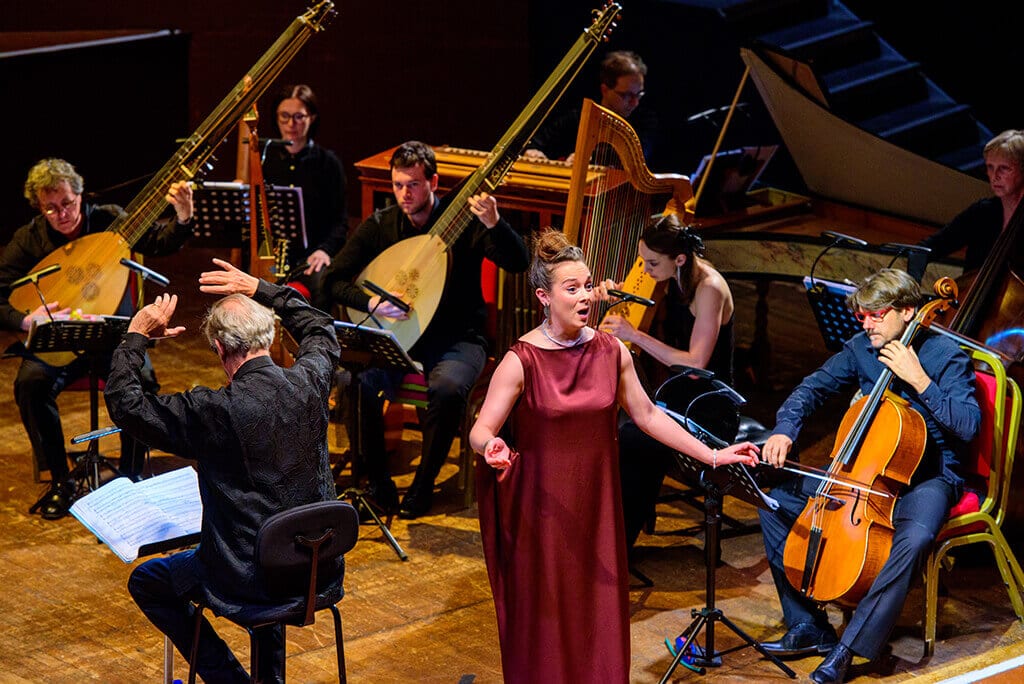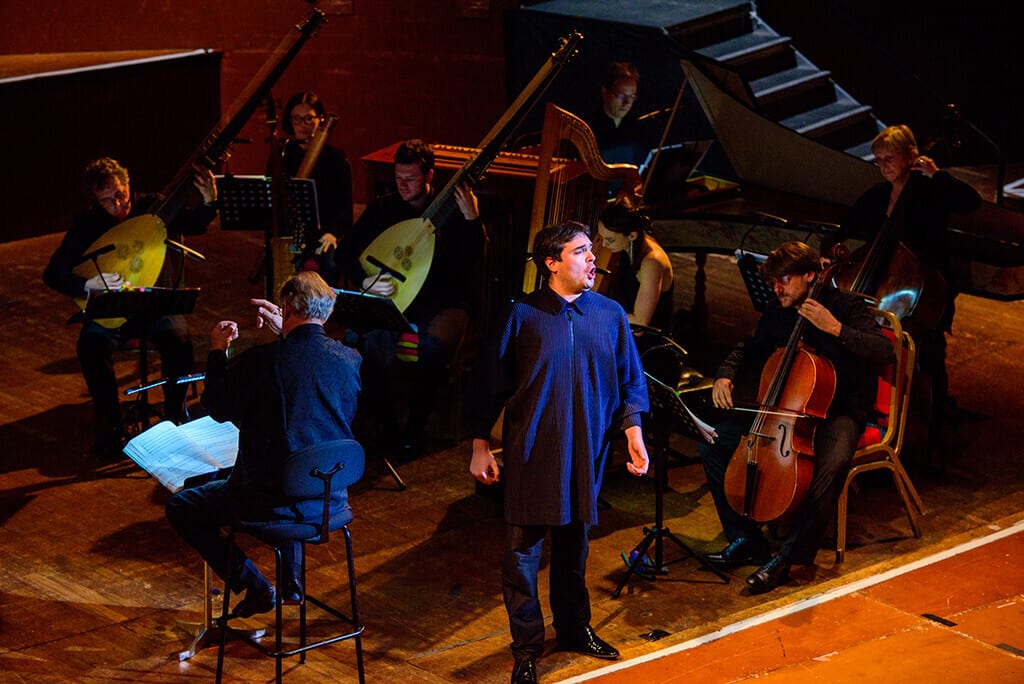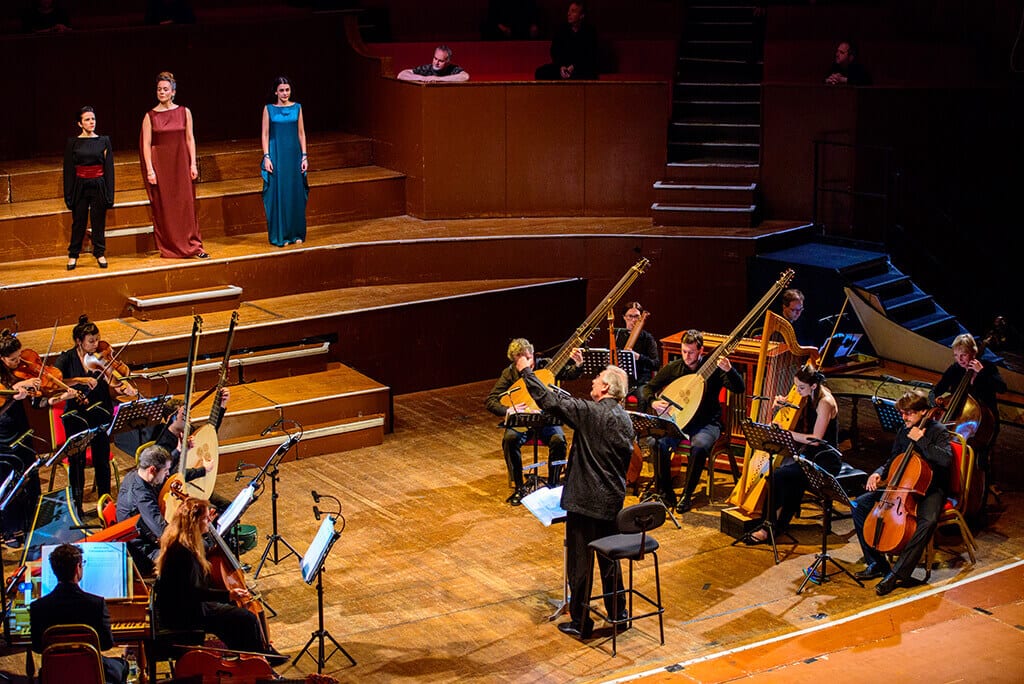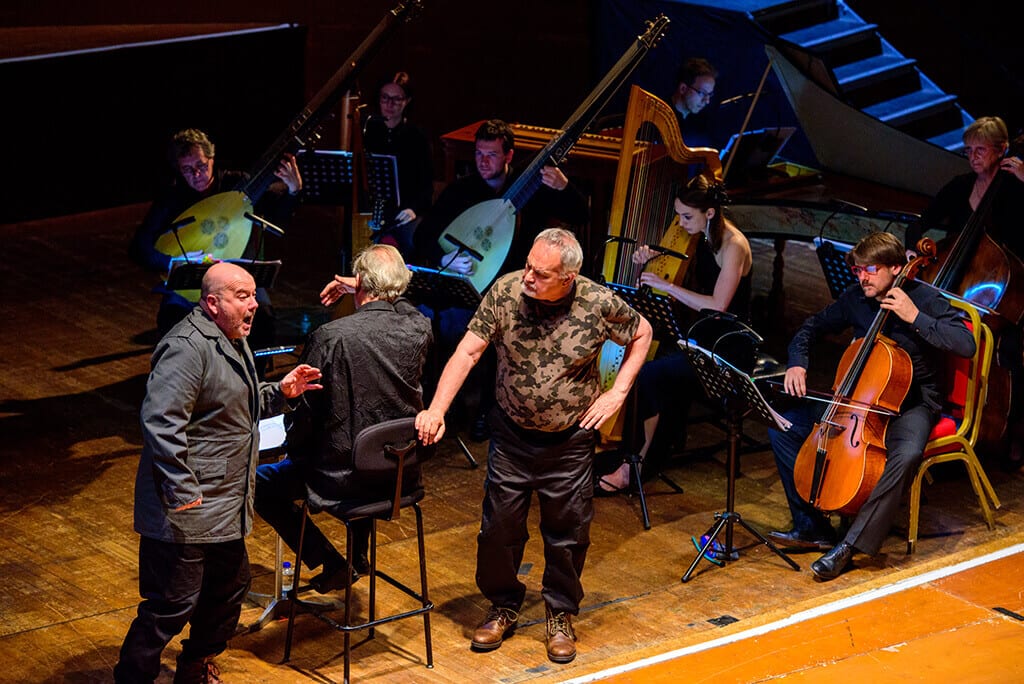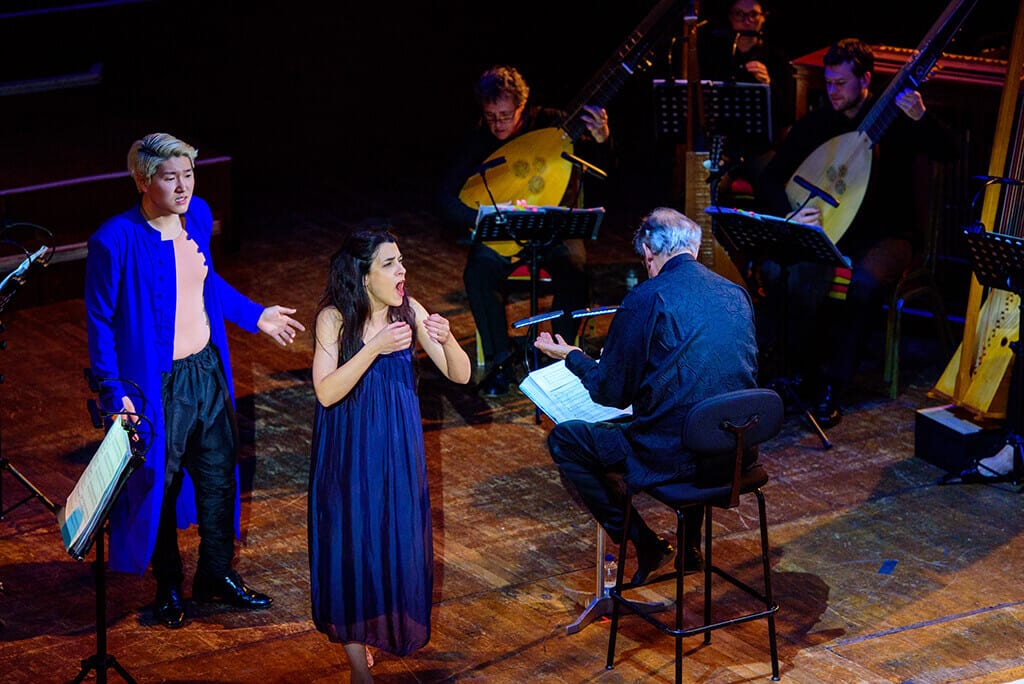As part of the celebration of the birth of Monteverdi 450 years ago, Sir John Eliot Gardiner has developed concert productions of the three great Monteverdi operas and, working with a group of wonderful singers, the Monteverdi Choir, and with the English Baroque soloists, is taking them ton Hall hosted around Europe. After a superb Ritorno d’Ulisse in April, Colston Hall hosted L’Incoronazione di Poppea on 8 May. It was another production to prove that early opera, when done by top quality artists and in stagings that demonstrate wit and style, can fire the enthusiasm of a contemporary audience.
A small orchestra of players with period instruments sit on the main stage of the hall. The singers sing from all points of the compass – at the front of the stage, from the choir stalls behind the stage, and even from doorways on the stage and in the auditorium. There is no scenery but the solo singers mostly wear simple but effective costumes designed by Patricia Hofstede. It is the wonderful sense of ensemble, fostered by John Eliot Gardiner’s masterly control of every aspect of the performance, which shines through this production as it did the first.
The story is of the passion of Roman Emperor Nero for his youthful mistress Poppea whom he wishes to marry after casting aside his loyal empress Ottavia. Poppea’s former suitor Otto conspires with his new love Drusilla and with the empress, to murder Poppea but Love (who appears in the person of a page boy) intervenes to save Poppea. The conspirators are all sent into exile, Ottavia is divorced and Love triumphs over Virtue.
The range of voices used by Monteverdi is alien to the opera lover brought up on Verdi and Italian opera of the 1800s. Now that we are blessed with so many fine counter tenors – and Kangmin Justin Kim as Nero and Carlo Vistoli as Otto are both outstanding here – the roles originally sung by castrati are once again sung in a way that seems faithful to the musical sound world of 1640. But two more conventional voices are those that stood out for me. Anna Dennis is stunning as Drusilla, her luminous soprano voice turning the naïve girl into a real force in the drama, her duets with Otto every bit as affecting as love duets of Puccini. And in the small part of Seneca, Nero’s adviser who chooses suicide rather than corruption, Gainluca Buratto sings with a dignified and powerful bass that fills the hall even when singing his lowest notes. Hana Blazikova is an ideal Poppea and Marianna Pizzolato invests the unsympathetic role of the self-righteous Ottavia with passion and pathos. There were well judged audience-pleasing comic turns by Lucille Richardot as Arnatta and by Michal Czerniawski as Nutrice.
But it is not the individual contributions that marked this performance out as outstanding; it is the sense that all the performers share the vision that is inspired by John Eliot Gardiner. So the brief choral moments shine too and the Prologue, where Fortune Virtue and Love set the scene for the passion and betrayals to come, makes a dramatic point that is surprisingly effective given the ancient conventions that gave it birth. It is a long evening that seems to flash by and, although the story is from Ancient Rome, the opera’s impact seems entirely up to the minute.

